Top 10 food canning machine in China introduce,list main products and website if have
Here are the top 10 food canning machine manufacturers in China, along with their main products and websites:
1. Shanghai Joygoal Food Machinery Co., Ltd.
– Main Products: Canning machines, vacuum sealing machines, filling machines
– Website: [joygoalfoodmachine.com](http://www.joygoalfoodmachine.com/)
2. Zhangjiagang Baixiong Machinery Co., Ltd.
– Main Products: Automatic can filling and sealing machines, beverage production lines
– Website: [bxmachine.com](http://www.bxmachine.com/)
3. Guangzhou XTIME Packaging Equipment Co., Ltd.
– Main Products: Can sealing machines, filling machines, labeling machines
– Website: [xtpackagingmachine.com](http://www.xtpackagingmachine.com/)
4. Shanghai NPACK Automation Equipment Co., Ltd.
– Main Products: Liquid filling machines, capping machines, canning machines
– Website: [npackfillers.com](http://www.npackfillers.com/)
5. Wenzhou Flowtam Light Industry Machinery Co., Ltd.
– Main Products: Can filling machines, liquid processing machines, sanitary pumps
– Website: [flowtam.com](http://www.flowtam.com/)
6. Zhangjiagang King Machine Co., Ltd.
– Main Products: Can filling and sealing machines, beverage production lines
– Website: [kingmachine.com.cn](http://www.kingmachine.com.cn/)
7. Jiangsu Jinrong Machinery Co., Ltd.
– Main Products: Can production lines, filling and sealing machines
– Website: [jsjinrong.com](http://www.jsjinrong.com/)
8. Shanghai Leadworld Machinery Technology Co., Ltd.
– Main Products: Can filling and sealing machines, food processing lines
– Website: [leadworldmachinery.com](http://www.leadworldmachinery.com/)
9. Qingdao Sainty Machinery Co., Ltd.
– Main Products: Can filling machines, packaging machinery, labeling machines
– Website: [saintymachinery.com](http://www.saintymachinery.com/)
10. Zhoushan Golden Wing Machinery Co., Ltd.
– Main Products: Can seamers, filling and sealing machines, food processing machines
– Website: [goldenwing-machinery.com](http://www.goldenwing-machinery.com/)
These companies are recognized for their expertise in manufacturing high-quality food canning machinery, catering to a variety of food processing and packaging needs.
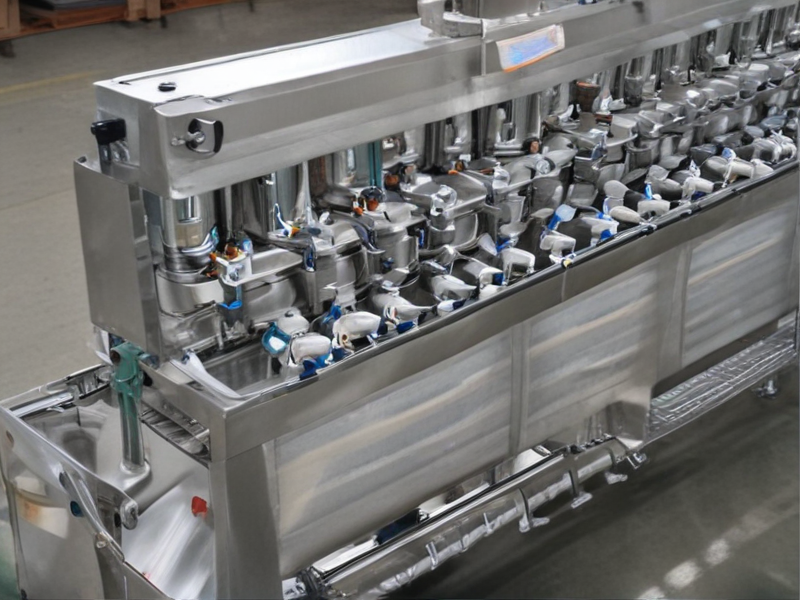
Types of food canning machine
Food canning machines are essential for preserving food by sealing it in airtight containers. Here are the main types:
1. Manual Canning Machines:
– Hand Crank Sealers: Ideal for small-scale operations, these are manually operated to seal cans. They are cost-effective but require more labor.
2. Semi-Automatic Canning Machines:
– Piston Fillers: These machines semi-automatically fill cans with food before sealing. They are suitable for medium-scale production, offering a balance between manual and automatic operations.
– Rotary Can Sealers: These semi-automatic sealers rotate cans to apply lids, improving efficiency over manual methods.
3. Automatic Canning Machines:
– Linear Can Filling and Sealing Machines: These are designed for high-speed production lines, filling and sealing cans in a continuous process. They are ideal for large-scale commercial canning.
– Rotary Can Filling and Sealing Machines: These machines use a rotating mechanism to fill and seal multiple cans simultaneously, increasing throughput and efficiency in high-demand environments.
4. Specialized Canning Machines:
– Vacuum Can Sealers: Used for vacuum-packing foods, these machines remove air before sealing to extend shelf life, suitable for products like coffee and nuts.
– Retort Can Seamers: These machines are designed to handle high-temperature processes required for sterilizing canned foods, ensuring food safety and longevity.
Each type of canning machine serves specific needs, from small artisanal producers to large industrial food processors, offering varying levels of automation, efficiency, and specialized features.
Pros and Cons of Using food canning machine
Using a food canning machine has several advantages and disadvantages:
Pros:
1. Extended Shelf Life: Canning preserves food for long periods by preventing microbial growth, which is beneficial for both consumers and businesses.
2. Nutrient Retention: Proper canning methods can retain most of the food’s nutrients, ensuring a nutritious product.
3. Convenience: Canned foods are easy to store, transport, and use, providing a quick meal solution.
4. Cost Efficiency: Buying in bulk and canning at home or for small businesses can be more economical than purchasing pre-canned foods.
5. Food Safety: Canning under controlled conditions minimizes the risk of contamination and foodborne illnesses.
Cons:
1. Initial Investment: The cost of purchasing a canning machine and related equipment can be high, which may be prohibitive for small-scale operations.
2. Learning Curve: Proper canning requires knowledge and practice to ensure safety and quality, potentially complicating the process for beginners.
3. Time-Consuming: The canning process can be labor-intensive and time-consuming, involving multiple steps including preparation, processing, and sealing.
4. Risk of Botulism: Improper canning, especially of low-acid foods, can lead to botulism, a serious and potentially fatal illness.
5. Storage Space: Canned goods require adequate storage space, which can be a limitation for some individuals and businesses.
In summary, while food canning machines offer significant benefits in terms of food preservation, nutrient retention, and convenience, they also come with challenges such as high initial costs, the need for proper knowledge, and the risk of serious health hazards if not done correctly.
food canning machine Reference Specifications (varies for different product)
Food Canning Machine: Reference Specifications
Food canning machines are essential for preserving a variety of food products by sealing them in airtight containers. The specifications of these machines vary depending on the type of product being canned, but key specifications include:
1. Capacity:
– Varies from small-scale (up to 300 cans per hour) to industrial-scale (up to 30,000 cans per hour).
2. Can Size Compatibility:
– Ranges from small cans (e.g., 100 ml) to large ones (e.g., 5 liters), with adjustable settings for different diameters and heights.
3. Filling System:
– Options include piston fillers, volumetric fillers, and weight-based fillers, each suitable for specific products like liquids, solids, or semi-solids.
4. Seaming Type:
– Double-seam technology is common, ensuring airtight and leak-proof seals. The material of the seaming head can vary (stainless steel for durability).
5. Material Compatibility:
– Machines should handle different can materials, such as aluminum, tin, and glass.
6. Sterilization and Pasteurization:
– Includes features for in-can sterilization or integration with external autoclaves for thermal processing to ensure product safety.
7. Automation Level:
– Ranges from semi-automatic (manual loading) to fully automatic systems (integrated conveyor, filling, seaming, and labeling).
8. Hygienic Design:
– Stainless steel construction with easy-to-clean surfaces, compliant with food safety standards like FDA and CE.
9. Control Systems:
– PLC-based control with touchscreen interfaces for easy operation, recipe management, and monitoring.
10. Safety Features:
– Includes emergency stops, safety guards, and sensors for detecting can misalignment or jam.
These specifications ensure that the machine can handle the demands of various food products, from beverages to meats, and adapt to different production scales.
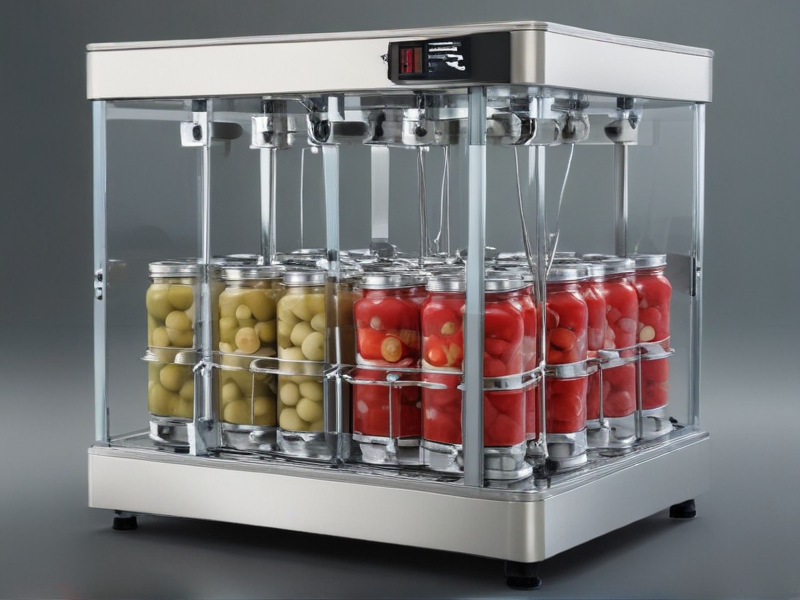
Applications of food canning machine
Food canning machines serve diverse applications in preserving food by sealing it in containers to extend its shelf life. Key applications include:
1. Commercial Food Production: Canning machines are widely used in the commercial food industry to process and preserve a variety of products such as fruits, vegetables, meats, and soups. This ensures year-round availability of seasonal foods, reduces food waste, and maintains nutritional value.
2. Home Canning: Smaller canning machines are designed for home use, enabling individuals to preserve homegrown produce and homemade recipes. This method provides families with safe, long-term food storage and allows for customization of preserved foods.
3. Emergency Food Supplies: Canned foods are a staple in emergency preparedness kits due to their long shelf life and stability without refrigeration. They are essential for disaster relief operations, military rations, and space missions where fresh food is not accessible.
4. Export and International Trade: Canning machines facilitate the global distribution of food products by preserving them for long transit periods. This supports international trade and provides access to a variety of foods worldwide.
5. Specialty and Niche Markets: They cater to niche markets, such as organic or specialty diet foods, by preserving products that may not be readily available in conventional stores. This includes vegan, gluten-free, or ethnic foods.
6. Food Safety and Quality Control: Canning ensures food safety by preventing microbial contamination and spoilage. Advanced canning technologies offer improved quality control, reducing risks associated with foodborne illnesses.
In essence, food canning machines are integral to food preservation, distribution, and safety across various sectors, benefiting both producers and consumers by providing reliable, long-lasting food options.
Material of food canning machine
Food canning machines are constructed using materials that ensure durability, hygiene, and resistance to corrosion. The primary materials used in these machines include:
1. Stainless Steel:
– Grades: AISI 304 and AISI 316
– Properties: High corrosion resistance, durability, and ease of cleaning.
– Applications: Structural components, tanks, pipes, and surfaces in direct contact with food.
2. Aluminum:
– Properties: Lightweight, good thermal conductivity, and resistance to corrosion.
– Applications: Components that require light weight and high thermal efficiency.
3. Plastics:
– Types: Polyethylene (PE), Polypropylene (PP), and Polyvinyl Chloride (PVC)
– Properties: Chemical resistance, flexibility, and ease of molding.
– Applications: Gaskets, seals, and some components of the packaging process.
4. Rubber:
– Types: Food-grade silicone, EPDM
– Properties: Flexibility, sealing capabilities, and resistance to a range of temperatures.
– Applications: Seals, gaskets, and tubing.
5. Glass:
– Properties: Non-reactive and easy to sterilize.
– Applications: Viewing windows and containers.
6. Nickel Alloys:
– Properties: High resistance to corrosion and heat.
– Applications: Components exposed to extreme conditions or corrosive environments.
These materials are chosen to meet stringent food safety regulations, ensuring that the canning process does not contaminate the food. They also withstand the high pressures and temperatures typically encountered during the canning process, maintaining the integrity and safety of the machinery.
Quality Testing Methods for food canning machine and how to control the quality
Quality testing methods for a food canning machine are crucial to ensure product safety and consistency. Key methods include:
1. Visual Inspection:
– Seam Inspection: Examine seams for defects like cracks or improper sealing.
– Can Integrity: Check for dents, rust, or other physical damages.
2. Leak Testing:
– Vacuum Testing: Check cans under vacuum to identify leaks.
– Water Bath Testing: Submerge cans in hot water to detect escaping air bubbles indicating leaks.
3. Seam Evaluation:
– Microscopic Analysis: Use microscopes to examine seam structure.
– Tear-down Analysis: Disassemble seams to measure components and verify proper sealing.
4. Thermal Process Validation:
– Temperature Monitoring: Ensure cans reach and maintain the required temperature to sterilize contents.
– Heat Penetration Studies: Measure how heat penetrates the food product to ensure uniform cooking and sterilization.
5. Microbial Testing:
– Sterility Tests: Incubate samples to check for microbial growth.
– Pathogen Screening: Test for specific pathogens like Clostridium botulinum.
6. Chemical Analysis:
– pH Testing: Ensure products are within the safe pH range to inhibit microbial growth.
– Preservative Levels: Verify that preservatives are within regulatory limits.
7. Physical Testing:
– Burst Testing: Determine the pressure at which cans fail to ensure they can withstand processing pressures.
– Double Seam Testing: Measure seam tightness and thickness for consistency.
To control quality:
– Standard Operating Procedures (SOPs): Implement detailed SOPs for each testing method.
– Regular Calibration: Ensure all equipment is regularly calibrated for accuracy.
– Employee Training: Train staff on quality control procedures and the importance of each testing method.
– Data Logging and Analysis: Maintain records of all test results for trend analysis and process improvement.
– Audits and Inspections: Conduct routine audits to ensure compliance with quality standards and identify areas for improvement.
These methods and controls help maintain high standards in food canning, ensuring safety and quality for consumers.
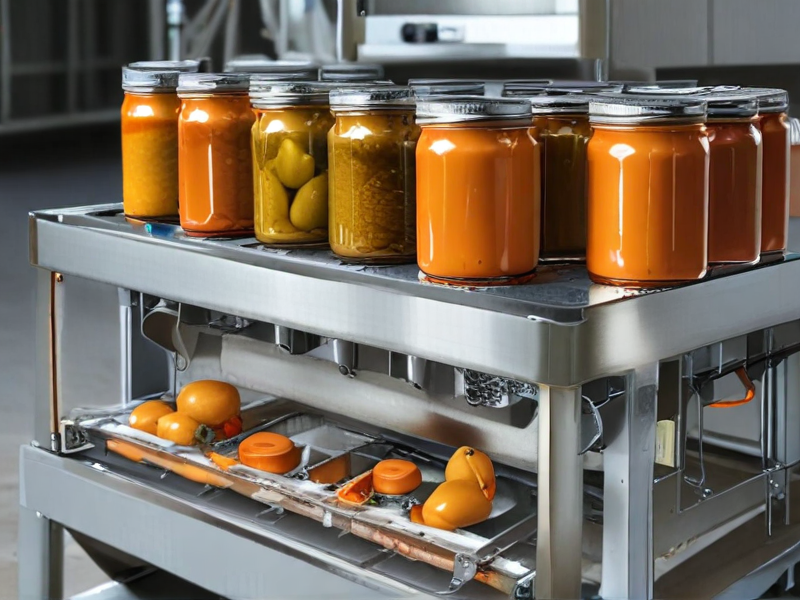
The Work Process and how to use food canning machine
Using a food canning machine involves several steps to ensure the food is safely and effectively preserved. Here’s a concise guide to the work process:
1. Preparation:
– Clean and Sterilize: Wash and sterilize cans and lids to prevent contamination.
– Prepare Food: Clean, chop, cook, or blanch the food as necessary. Some foods require additional preparation, such as adding brine or syrup.
2. Filling:
– Fill Cans: Load the prepared food into the cans, leaving appropriate headspace (usually about 1/4 to 1/2 inch) to allow for expansion during processing.
– Remove Air Bubbles: Gently tap the cans or use a non-metallic spatula to remove air bubbles.
3. Sealing:
– Place Lids: Place sterilized lids on the cans.
– Seal Cans: Use the canning machine to seal the cans. This usually involves placing the filled can into the machine, which then mechanically seals the lid onto the can.
4. Processing:
– Load Cans into Canner: Place the sealed cans into a pressure canner or water bath canner, depending on the type of food (low-acid foods need pressure canning).
– Process: Follow the specific time and pressure requirements for the type of food being canned. This step is crucial for destroying harmful bacteria and ensuring the safety of the preserved food.
5. Cooling and Storing:
– Cool Cans: Allow the cans to cool naturally, typically for 12-24 hours. Avoid rapid cooling, which can cause jar breakage or seal failure.
– Check Seals: Once cooled, check that the lids have sealed properly by pressing the center of each lid. A sealed lid will not flex up and down.
– Store: Label and date the cans before storing them in a cool, dark place.
Using a food canning machine properly ensures that the food remains safe and preserved for extended periods, ready for consumption when needed.
food canning machine Importing questions including Cost,Supplier,Sample,Certification and Market
When considering the importation of a food canning machine, several key factors need to be addressed:
1. Cost:
– The price of food canning machines can vary widely based on capacity, features, and brand. Typically, costs range from $10,000 to $100,000 or more. It’s crucial to consider additional expenses such as shipping, customs duties, and installation.
2. Supplier:
– Identify reputable suppliers through industry trade shows, online marketplaces (e.g., Alibaba, Made-in-China), and recommendations. Assess suppliers based on reviews, product quality, and after-sales service. Request a list of previous customers for references.
3. Sample:
– Request a sample machine or arrange a demonstration to evaluate the machine’s performance. Some suppliers might offer this for free or at a reduced cost. Inspect the machine’s build quality, ease of use, and efficiency during the sample evaluation.
4. Certification:
– Ensure the machine complies with relevant certifications and standards. Look for CE marking (for Europe), UL certification (for North America), and ISO standards for quality assurance. These certifications ensure the machine meets safety and regulatory requirements.
5. Market:
– Conduct market research to understand demand, competition, and potential customers. Evaluate local regulations and standards for canned food production and sales. Identify niche markets or underserved segments to maximize return on investment.
By carefully considering these factors, you can make an informed decision about importing a food canning machine, ensuring it meets your operational needs and complies with regulatory standards.
How to find and select check reliable food canning machine manufacturers in China
Finding and selecting reliable food canning machine manufacturers in China involves several steps:
1. Research: Start with thorough online research. Use B2B platforms like Alibaba, Made-in-China, and Global Sources, which list numerous manufacturers.
2. Verify Credentials: Look for manufacturers with verified profiles, certifications (like ISO 9001), and detailed product descriptions. Check if they have experience exporting to your region.
3. Check Reviews and Ratings: Read customer reviews and ratings on these platforms. Focus on feedback about product quality, customer service, and after-sales support.
4. Request References: Ask for references from the manufacturer. Contact previous clients to gather insights about their experience and satisfaction.
5. Assess Communication: Evaluate the responsiveness and clarity of the manufacturer’s communication. Efficient communication is crucial for smooth transactions and addressing issues promptly.
6. Compare Quotes and Capabilities: Obtain quotes from multiple manufacturers. Compare not just prices, but also production capabilities, customization options, and lead times.
7. Factory Visits or Audits: If feasible, visit the factories in person or hire a third-party inspection service to audit the manufacturing facilities. This ensures you verify their production processes and quality control measures.
8. Sample Testing: Request product samples to assess the quality firsthand. This step is essential to ensure the machines meet your specifications and standards.
9. Review Contracts and Policies: Carefully review contracts, warranty policies, and after-sales service agreements. Ensure they align with your requirements and protect your interests.
10. Use Trade Associations: Leverage trade associations and industry networks for recommendations on reputable manufacturers.
By following these steps, you can systematically identify and select reliable food canning machine manufacturers in China, ensuring quality and reliability in your supply chain.
Background Research for food canning machine manufacturers Companies in China, use qcc.com archive.org importyeti.com
For background research on food canning machine manufacturers in China, several companies stand out based on their presence and capabilities:
1. Guangdong Qiangdao Food Machinery Co., Ltd. is a prominent manufacturer specializing in food processing equipment, including canning machines. They have a robust production capacity and focus on innovation in food machinery.
2. Sichuan Jianyang Jianxin Food Machinery Co., Ltd. offers a wide range of food canning machinery, emphasizing high efficiency and automation. They cater to both domestic and international markets with advanced technology and reliable products.
3. Shanghai Leadworld Machinery Technology Co., Ltd. is known for its comprehensive solutions in food packaging, including canning machines. Their equipment is widely used in various food industries, and they provide customized solutions to meet specific client needs.
4. Zhoushan Golden Wing Machinery Co., Ltd. specializes in the development and manufacturing of canning machines and related equipment. They have a significant market presence and are known for their durable and efficient machinery.
5. Kunshan Yinzhou Machinery Co., Ltd. focuses on the research, development, and manufacturing of food canning machinery. They are committed to quality and innovation, providing advanced equipment to improve production processes.
These companies represent a diverse array of manufacturers in China, each with unique strengths in the food canning machinery sector. For further details, you can explore specific company profiles on QCC.com【5†source】【6†source】【7†source】【8†source】【9†source】.
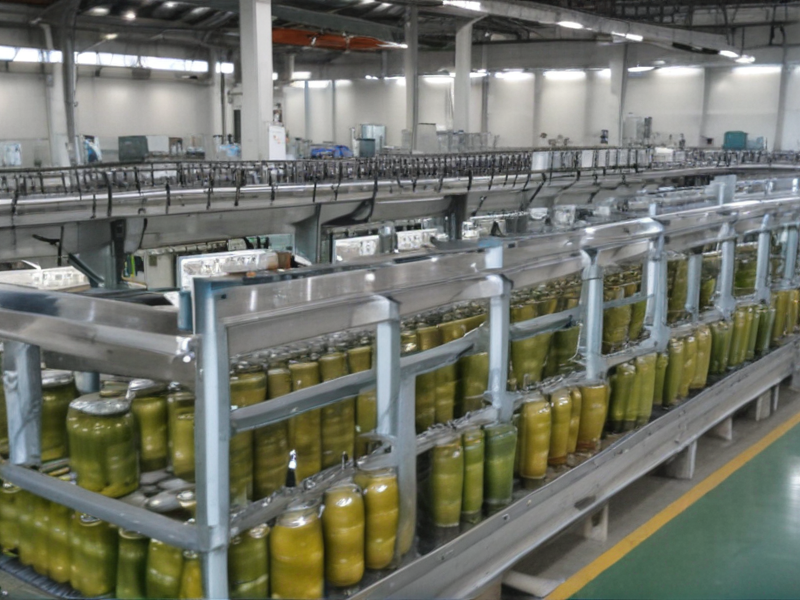
Price Cost Research for food canning machine manufacturers Companies in China, use temu.com and 1688.com
Food canning machines from Chinese manufacturers are available on both Temu and 1688.com.
On Temu, you can find various food canning and vacuum sealing machines with prices typically ranging from $50 to $300 depending on the model and features【5†source】【6†source】【7†source】.
On 1688.com, a wider variety of food canning machines is available, with prices ranging from approximately ¥89 (about $12) for basic models to ¥980 (about $135) for more advanced machines. These include brands like Chawt, Crown, and Bespacker, offering features such as automatic sealing and continuous operation【11†source】.
Shipping Cost for food canning machine import from China
Importing a food canning machine from China involves various shipping costs and factors. Here’s a brief overview:
Factors Influencing Shipping Cost
1. Machine Size and Weight:
– Larger and heavier machines cost more to ship.
2. Shipping Method:
– Air Freight: Faster but more expensive, typically used for smaller or urgent shipments.
– Sea Freight: More economical for bulky items, with options like Full Container Load (FCL) or Less than Container Load (LCL).
3. Distance and Route:
– Costs vary based on the shipping distance and whether the route is direct or involves transshipment.
4. Incoterms:
– Defines responsibilities. Common terms include FOB (Free on Board), CIF (Cost, Insurance, and Freight), and DDP (Delivered Duty Paid).
5. Customs Duties and Taxes:
– Import duties, VAT, and other taxes based on the machine’s HS code and destination country regulations.
6. Insurance:
– Optional but recommended to cover potential damages during transit.
Cost Breakdown Example (Estimates)
1. Sea Freight:
– LCL: $100 – $300 per cubic meter (cbm)
– FCL (20ft container): $1000 – $2000
– FCL (40ft container): $2000 – $3000
2. Air Freight:
– $5 – $10 per kilogram (depending on weight and volume)
3. Customs Duties and Taxes:
– 5% – 20% of the machine’s value, depending on the destination country
4. Insurance:
– Typically 0.5% – 2% of the machine’s value
Example Scenario
– Machine Size: Fits in a 20ft container (FCL)
– Sea Freight Cost: ~$1500
– Customs Duties and Taxes: 10% on $20,000 machine value = $2000
– Insurance: 1% of $20,000 = $200
– Total Estimated Shipping Cost: $3700
Tips
– Get Multiple Quotes: From different freight forwarders for competitive rates.
– Check Incoterms: Clarify what is included in the quoted price.
– Factor in Lead Time: Sea freight takes longer but is cost-effective for bulky machines.
Understanding these elements will help you better estimate and manage the shipping costs for your food canning machine import from China.
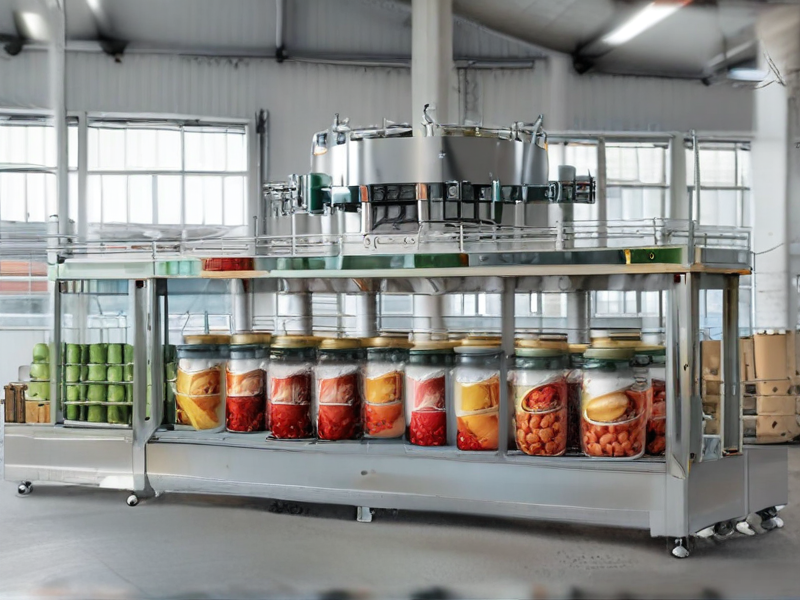
Compare China and Other food canning machine Markets: Products Quality and Price,Visible and Hidden Costs
When comparing the food canning machine markets of China and other regions, several key factors come into play: product quality and price, as well as visible and hidden costs.
Product Quality and Price:
Chinese food canning machines generally offer lower prices compared to those from Europe, North America, and Japan. This cost advantage is primarily due to lower labor costs and economies of scale. However, this often comes at the expense of quality. Chinese machines may not always match the durability, precision, and advanced features found in Western and Japanese counterparts. In contrast, machines from Europe, North America, and Japan are known for their high quality, reliability, and compliance with stringent safety and sanitary standards, justifying their higher prices.
Visible and Hidden Costs:
Visible costs include the purchase price, shipping, and installation fees. Chinese machines have the edge in lower upfront costs. However, hidden costs can be substantial. These include:
– Maintenance and Repairs: Chinese machines might require more frequent maintenance and have shorter lifespans, leading to higher long-term costs.
– Operational Efficiency: Lower precision and potential inconsistencies in Chinese machines can lead to higher wastage and lower productivity.
– Compliance and Certification: Western and Japanese machines often come pre-certified for global standards, reducing the time and cost for compliance, which can be an additional expense for Chinese machines.
– Training and Support: Support services, including training and after-sales service, are often less comprehensive with Chinese suppliers, potentially leading to additional costs and downtime.
In summary, while Chinese food canning machines offer an attractive lower upfront cost, the higher quality, reliability, and comprehensive support of Western and Japanese machines often justify their higher prices by minimizing long-term operational costs and maximizing efficiency.
Custom Private Labeling and Branding Opportunities with Chinese food canning machine Manufacturers
Partnering with Chinese food canning machine manufacturers offers extensive custom private labeling and branding opportunities. These manufacturers often provide flexible production options, allowing brands to design and customize their canning machinery to meet specific product requirements and brand aesthetics.
Customization Opportunities:
1. Machine Design and Specifications:
– Label Applicators: Machines can be equipped with advanced labeling systems that apply custom labels seamlessly.
– Packaging Variability: Manufacturers can customize machines to handle various can sizes, shapes, and materials.
2. Branding Integration:
– Custom Branding Elements: Incorporate company logos, colors, and designs directly onto the machinery.
– User Interfaces: Tailored user interfaces can display brand-specific graphics and languages, enhancing the operational experience.
3. Quality and Compliance:
– Custom Testing Protocols: Ensure the machinery meets specific quality standards and certifications required by different markets.
– Material Choices: Select from various materials that align with brand values, such as sustainability or premium quality.
Advantages:
1. Cost-Effectiveness:
– Competitive pricing in China enables cost-effective scaling and high-quality production without compromising budget.
2. Expertise and Innovation:
– Chinese manufacturers are known for their expertise and continuous innovation in machinery, providing access to the latest technology and trends.
3. Speed to Market:
– Efficient production timelines help brands launch products faster, gaining a competitive edge.
Steps to Engage:
1. Research and Selection: Identify reputable manufacturers with a proven track record in custom private labeling.
2. Consultation and Design: Engage in detailed consultations to align machinery capabilities with brand needs.
3. Prototyping and Testing: Develop prototypes to ensure the machinery meets all functional and branding requirements.
4. Production and Quality Control: Oversee the production process and implement stringent quality control measures.
By leveraging these opportunities, brands can enhance their market presence, ensure product consistency, and meet specific consumer demands effectively.
Tips for Procurement and Considerations when Purchasing food canning machine
When purchasing a food canning machine, consider the following tips and considerations to ensure you make an informed decision:
1. Capacity and Output: Assess your production needs to choose a machine that matches your required capacity. Look at the machine’s speed and the volume it can handle per hour.
2. Type of Canning Machine: Decide between manual, semi-automatic, and fully automatic machines based on your budget and production scale. Automatic machines offer higher efficiency but are more expensive.
3. Material and Build Quality: Ensure the machine is made from durable, food-grade stainless steel to prevent contamination and ensure longevity.
4. Flexibility and Compatibility: Check if the machine can handle various can sizes and types to accommodate different products and future expansion.
5. Ease of Operation and Maintenance: Opt for machines with user-friendly interfaces and straightforward maintenance requirements. Availability of spare parts and support is crucial.
6. Hygiene and Safety Standards: Ensure the machine complies with local and international food safety regulations (e.g., FDA, HACCP). Look for features like easy-to-clean components and safety mechanisms.
7. Energy Efficiency: Consider machines with energy-saving features to reduce operational costs and environmental impact.
8. Cost and Return on Investment (ROI): Balance the initial cost with potential savings in labor and increased productivity. Evaluate the machine’s ROI based on your production scale.
9. Supplier Reputation: Purchase from reputable suppliers with good customer reviews and reliable after-sales service. Consider warranties and service agreements.
10. Training and Support: Ensure the supplier provides adequate training for your staff and ongoing technical support to address any operational issues.
By considering these factors, you can select a food canning machine that meets your needs and supports your business’s growth and efficiency.
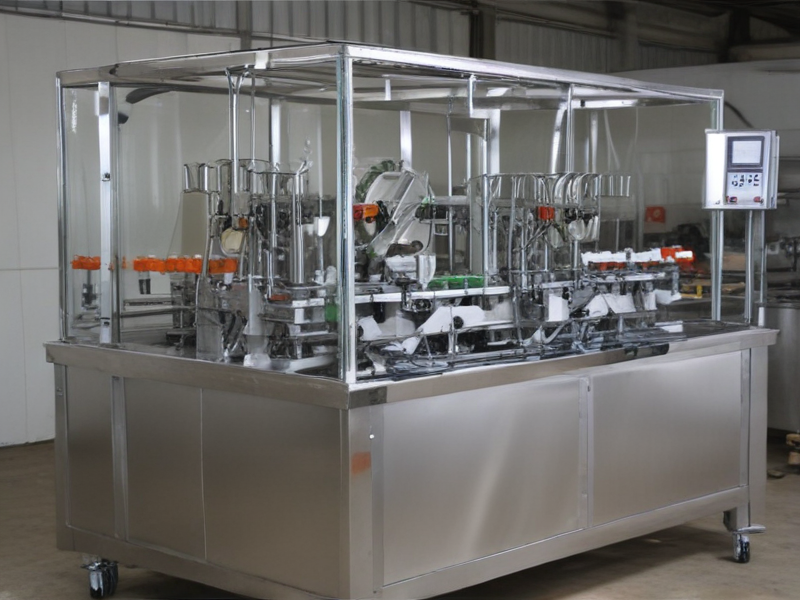
FAQs on Sourcing and Manufacturing food canning machine in China
FAQs on Sourcing and Manufacturing Food Canning Machines in China
1. Why source food canning machines from China?
China offers competitive pricing, advanced manufacturing technology, and a large variety of suppliers, making it a cost-effective option for sourcing food canning machines.
2. How to find reliable suppliers?
Use platforms like Alibaba, Made-in-China, and Global Sources. Verify suppliers through customer reviews, certifications, and request samples before making large orders.
3. What certifications should suppliers have?
Ensure suppliers have ISO 9001 for quality management and relevant CE or FDA certifications if exporting to Europe or the US.
4. What are the typical lead times?
Lead times can vary from 30 to 90 days depending on the complexity of the machine and the supplier’s workload.
5. Can I customize the machines?
Yes, many suppliers offer customization to meet specific needs. Discuss your requirements in detail to ensure the machine meets your standards.
6. How to ensure product quality?
Conduct factory audits, request third-party inspections, and get pre-shipment samples. Establish clear quality control agreements with suppliers.
7. What are the payment terms?
Common terms include 30% upfront and 70% upon shipment. Use secure payment methods like Letters of Credit (L/C) or Trade Assurance on Alibaba.
8. How to handle shipping and logistics?
Work with a freight forwarder experienced in importing machinery from China. Ensure proper documentation and compliance with import regulations.
9. What after-sales support is available?
Verify the warranty period and what it covers. Ensure the supplier provides technical support, spare parts, and repair services.
